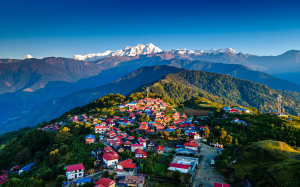Money
Govt committee to study gas card system
The Supply Ministry has formed a four-member committee to study implementation of card system for the distribution of liquefied petroleum gas (LPG).
The Supply Ministry has formed a four-member committee to study implementation of card system for the distribution of liquefied petroleum gas (LPG).
It is the third time the government has planed implementing the system after its first two attempts ended in fiasco. The committee has been asked to submit its report in two weeks.
Under-secretary Arjun Raj Panta heads the committee. Among the members are Nepal Oil Corporation (NOC) Director Mukunda Ghimire, LP Gas Industry Association President Shiva Prasad Ghimire and National Consumer Forum President Prem Lal Maharjan.
Last month, a meeting of the Consumer Council at the ministry had decided to enforce the gas card system.
According to the ministry, the card system could control malpractices in LPG distribution and end shortages. The system is also expected to support the government’s scheme to implement colour-coded gas cylinders. Under this system, household buyers would get red cylinders at a subsidised rate, while industrial users would get blue cylinders sold at full price.
The government had first launched the system in 2012, issuing the first such card to the then Prime Minister Baburam Bhattarai. A total of 632,000 such cards were distributed and Rs6.32 million was collected from the subscribers. Former NOC chief Chandika Prasad Bhatta, who had planned to enforce the dual cylinder system from January 29, 2015, was removed from the post two days before its scheduled launch. The plan has been put on the backburner even since his ouster.
Consumer right activists expressed doubts about the success of the gas card system. “It may not be effectively implemented given poor government mechanism to regulate the market,” said Jyoti Baniya, president of Consumers’ Welfare Protection Forum.
Meanwhile, the Supply Ministry has formed a separate committee to study the use of ethanol in diesel. “The government, which an aim at reducing petroleum import, plans to enforce the provision as soon as possible if it is found feasible,” said the ministry’s Spokesperson Ananda Ram Regmi, who is the committee’s coordinator.
Regmi said representatives from Nepal Bureau of Standards and Metrology, Alternative Energy Promotion Center and Ministry of Science and Technology are among the committee members. The government, in the annual budget three years ago, had announced such a provision.




 26.12°C Kathmandu
26.12°C Kathmandu













